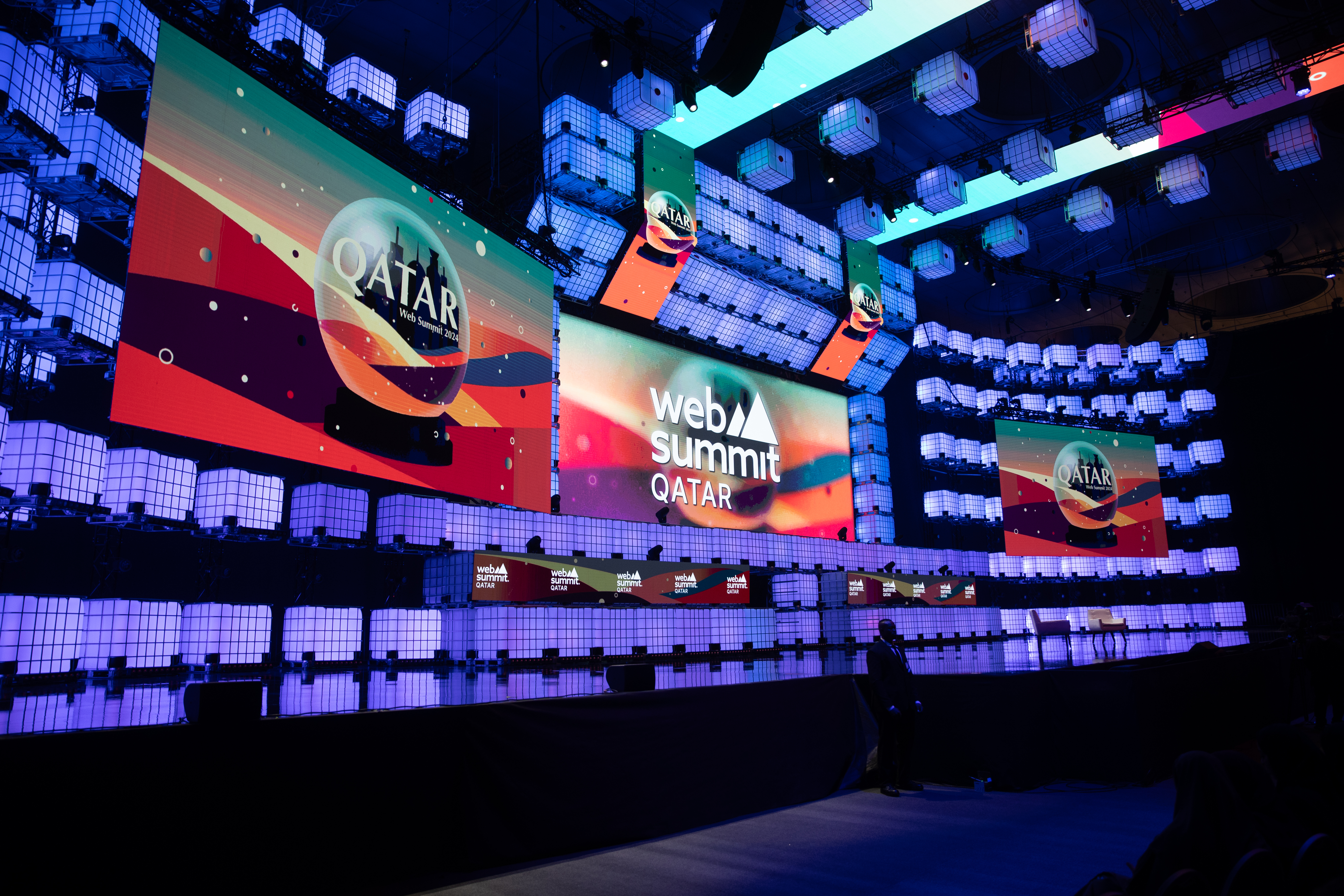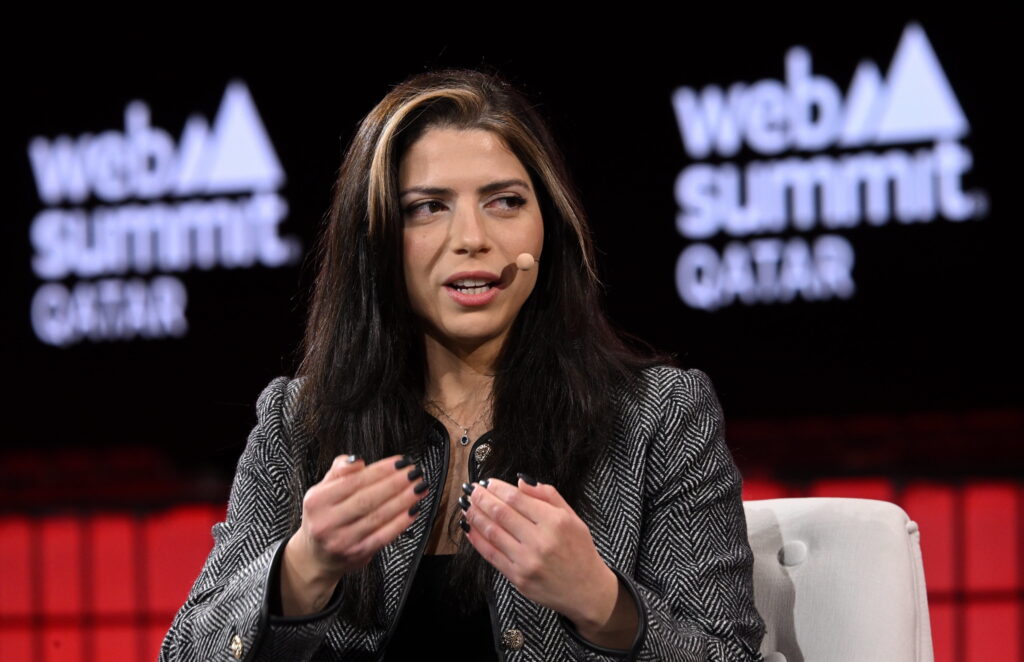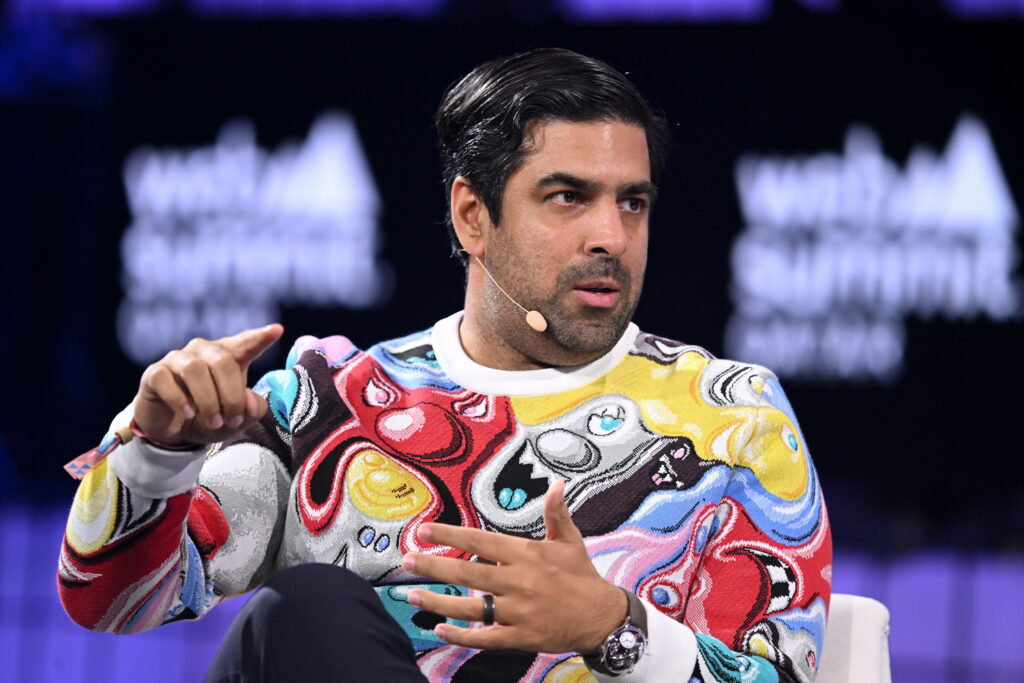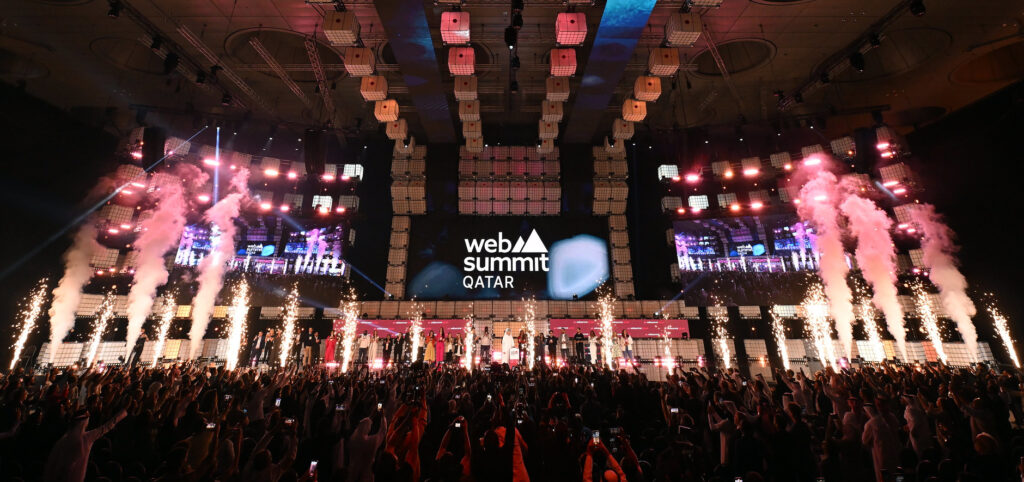
Here’s what you missed at Web Summit Rio 2024
Take a look at some of the highlights from Web Summit Rio 2024, where AI, climate, fintech and more took...

It’s no surprise that AI was a dominant topic on both Opening Night and the first day of our event, with Builder.ai founder and chief wizard Sachin Dev Duggal, as well as presenter and author Trevor Noah weighing in.
We had an out-of-this-world perspective on politics and human rights from Deep Space Initiative founder, CEO and astronaut Sara Sabry, and came back to earth to get the latest on the burgeoning tech scene that’s attracting investment across MENA.
As GenAI tools such as ChatGPT continue to gain popularity, author and presenter Trevor Noah urged caution about overestimating their capabilities. “As human beings, we’re oftentimes prone to viewing these technologies as being human, when in fact sometimes they are just giving us an output that matches our interpretation of what a human being would or wouldn’t do,” said Trevor.
The tech-savvy presenter has apparently spent time interrogating ChatGPT to understand its limitations. “I don’t see myself getting married to ChatGPT anytime soon,” joked Trevor. “I spend a lot of time asking ChatGPT about how it’s processing information, or how it’s thinking. And then it gives me an insight into it.”
While applauding technology’s ability to connect people across divides, the author warned of unintended consequences. “I think the biggest thing we always have to acknowledge is this: If you bridge the gap between people very quickly, it’s good for good. It’s also [good] for bad,” said Trevor.
Trevor concluded, “I think one of the most difficult things in dealing with technology is understanding that we do not always know the effect of that technology that we’re implementing.”
The author and comedian warned that, as AI advances, AI-generated images, videos and text will lead to a situation where – between deep fakes and misinformation – no one knows what to believe.
“We’ve lived in a world where people have said ‘don’t believe it until you see it’, right? But now, when you see something with your own eyes, can you believe it?,” said Trevor.
 Astronaut Sara Sabry speaking on stage at Web Summit Qatar 2024. Image: Stephen McCarthy/Web Summit (CC BY 2.0)
Astronaut Sara Sabry speaking on stage at Web Summit Qatar 2024. Image: Stephen McCarthy/Web Summit (CC BY 2.0)Describing the groundbreaking journey to becoming the first Arab and African woman in space, astronaut Sara Sabry shared insights that extended beyond the technical achievements of space travel.
Sara believes that experiencing space firsthand can fundamentally alter one’s perspective, advocating for world leaders to embark on space missions to gain a unique and unifying view of our planet.
“I truly believe that we need to be sending more people – more leaders, more politicians, more people of influence – to go to space, because it gives you this other perspective of the world, that we’re really all the same,” said Sara.
“It’s an incredible experience,” Sara remarked, referring to the phenomenon of seeing Earth from space, known as the overview effect, which is what the astronaut was sent into space to study.
Sara’s advocacy for sending influential figures into space is grounded in the conviction that such experiences can lead to a greater sense of global unity and cooperation. “We’re really all the same,” observed the astronaut, highlighting how space travel can reveal the insignificance of political and cultural differences when we all look the same from the Blue Origin rocket.
Beyond a call for more inclusive access to space, Sara’s post-spaceflight mission focuses on addressing broader issues, such as human rights and education accessibility.
“Not everyone has US$20,000 to pay to get educated … but education should be a right that is for all, just like space should be a right that is for all, just like human rights should be applied for all,” said Sara.
MENA is a region of huge potential, not just for tech expansion but for economic development more generally. With almost two billion people – half of whom are under 30, and with 85 percent digital penetration already – it is a massive and relatively untapped human resource.
But the region is increasingly attracting investment, particularly from within the Middle East itself. “[In 2023] there was about US$2.6 billion deployed across MENA,” said Global Ventures founder and managing partner Noor Sweid, “and [2022] was our peak year at US$3 billion, still much higher than when I first started the firm.”
Khaled Talhouni, managing partner at Nuwa Capital, attributed this healthy development in investment to both young demographics and increasing economic liberalisation. “While there are some geopolitical headwinds, I think that’s par for the course in emerging and developing markets,” said Khaled.
“I think it’s very important for us to take stock of the very long-term trajectory. If you fast forward, if you look at the trajectory and five to 10 year increments, it’s a sea change. It’s an entirely different ecosystem,” added Khaled.
 Sachin Dev Duggal, founder and chief wizard at Builder.ai, speaking on stage at Web Summit Qatar 2024. Image: Stephen McCarthy/Web Summit (CC BY 2.0)
Sachin Dev Duggal, founder and chief wizard at Builder.ai, speaking on stage at Web Summit Qatar 2024. Image: Stephen McCarthy/Web Summit (CC BY 2.0)When it comes to AI in 2024, there is massive information asymmetry, said Builder.ai founder and chief wizard Sachin Dev Duggal: “Everybody is now a well-known expert for some reason, but you go back, and they haven’t even studied stats or math, or computer science, but they’re talking about language models as if they invented them.”
Sachin said that people are calling it the AI moment in the same way that the internet had the oft-referenced AOL moment in 1997, with the arrival of the free AOL installation disk. The internet had been around for decades, but suddenly, it became mainstream, and everyone wanted a part of it.
Similarly, Mohammed Al-Hardan, head of tech for Qatar Investment Authority head of tech , which led the recent US$250 million in Series D funding for Builder.ai, noted that a lot of startups were trying to cash in on the buzz – “they had AI in the name, but didn’t use AI”.
So where are we now? Sachin explained that on the one hand, with ChatGPT, there was this “big innovation in 2022 where suddenly you had complex software but the front-end looked like WhatsApp”, but on the other hand, AI is still in its infancy – “we’re only scratching the surface”.
Should education adjust to the rapidly evolving world of technology? And how can the education process foster entrepreneurial development?
SET University president Iryna Volnytska, Minerva Project founder and CEO Ben Nelson, and UC Berkeley-Haas Entrepreneurship Programme executive director Rhonda Shrader shared their insights on how education systems need to adapt to the modern needs of humanity.
“We need to stop pretending that the skills from the 2000s are still relevant”, said Iryna, adding “the world has completely transformed since then, but education still looks the same.”
Iryna discussed how crucial it is to embrace “lifelong learning” because, as the world and technological landscapes evolve, so must humanity’s learning institutions. “We need to teach our future leaders how to expect the unexpected and how to survive,” said Iryna.
Ben also commented on the looming threat that evolving technologies pose to the workforce. While denying the popular claim that AI will one day replace human jobs, the founder admitted that the trope is not far off.
“You’re not going to be replaced by AI; you’ll be replaced by someone who knows how to use AI,” Ben said. “But that understates the effect … because it’s not going to be one person that will be replaced by one person who knows how to use AI, it’s five, six, seven people. That is the challenge,” Ben added.
Discussing how to approach the fundamental challenge of the introduction and adoption of emerging technologies within education systems, Rhonda urged attendees to “start in a different place”.
“When building an entrepreneurship ecosystem, stop starting with investors and start focusing on education as the foundation.”
Main image of Centre Stage at Web Summit Qatar: Web Summit Qatar/Web Summit (CC BY 2.0)

Take a look at some of the highlights from Web Summit Rio 2024, where AI, climate, fintech and more took...

Did you miss out on Web Summit Qatar 2024? Here’s a roundup of j...